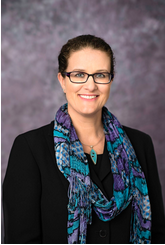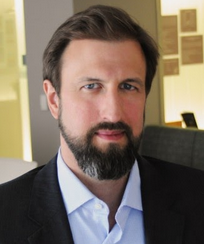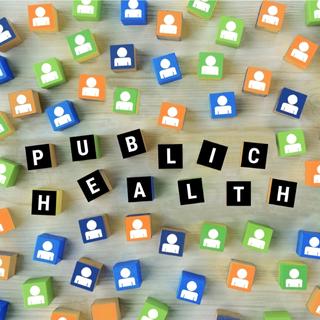Effective COVID Response
About the Training
Online Seminar & Discussion
7/24/2020
9am-10:30am (MST)
Cost: Free
Register for Effective COVID Response
Description
The COVID-19 pandemic is causing significant disruptions to cities and local communities across the US. This training, featuring public health experts from the COVID Local team, will provide health practitioners and decision-makers with an overview of effective COVID response, including Key Actions for response, and Metrics for Reopening. Participants will also be guided through scenario planning exercises.
Learning Objectives from the COVID Local Suite of Tools
- Understand actions needed to establish a whole-of-community incident management structure
- Recognize actions to take within the community to delay/reduce transmission
- Interpret and consistently assess current data and metrics for phased reopening
- Engage in long-term planning for community resources and preparedness planning
Trainer Information
COVID Local Team

Cora Neumann, PhD, MPH
Cora Neumann, MPH, PhD, is a public health leader and public lands expert with two decades of experience improving access to health care, expanding economic opportunity, and protecting access to public lands. In 2009, Cora launched the Global First Ladies Alliance in partnership with the offices of First Ladies Laura Bush and Michelle Obama, over time working with more than 40 first ladies around the world to help bring critical healthcare and social services to their populations. During the Ebola outbreak of 2014, Cora helped First Ladies in Western Africa coordinate local, national and international aid responses. She is applying these lessons to the current COVID outbreak in the U.S., and is collaborating with a team of national experts to support Montana with strategic guidance and support on medical capacity, surveillance architecture, logistics and protecting vulnerable populations

Beth Cameron, PhD
Dr. Cameron previously served as the senior director for global health security and biodefense on the White House National Security Council (NSC) staff, where she was instrumental in developing and launching the Global Health Security Agenda and addressed homeland and national security threats surrounding biosecurity and biosafety, biodefense, emerging infectious disease threats, biological select agents and toxins, dual‐use research, and bioterrorism. From 2010‐2013, Dr. Cameron served as office director for Cooperative Threat Reduction (CTR) and senior advisor for the Assistant Secretary of Defense for nuclear, chemical and biological defense programs. In this role, she oversaw implementation of the geographic expansion of the Nunn‐Lugar CTR program. For her work, she was awarded the Office of the Secretary of Defense Medal for Exceptional Civilian Service.

Rebecca Katz, PhD, MPH
Dr. Rebecca Katz is a Professor and Director of the Center for Global Health Science and Security at Georgetown University Medical Center. She teaches courses on global health diplomacy, global health security, and emerging infectious diseases in the School of Foreign Service. Prior to coming to Georgetown in 2016, she spent ten years at The George Washington University as faculty in the Milken Institute School of Public Health. Since 2007, much of her work has been on the domestic and global implementation of the International Health Regulations as well as global governance of public health emergencies. She has authored over 80 peer reviewed manuscripts, and three books in addition to numerous op eds, blogs, white papers and book chapters.
From 2004 to 2019, Dr. Katz was a consultant to the Department of State, working on issues related to the Biological Weapons Convention, pandemic influenza and disease surveillance.

Jeremy Konyndyk, MSFS
Jeremy Konyndyk is a senior policy fellow at the Center for Global Development. His research focuses on humanitarian response, USAID policy reform, and global outbreak preparedness.
He previously served in the Obama Administration from 2013-2017 as the director of USAID’s Office of US Foreign Disaster Assistance (OFDA), where he led the US government’s response to international disasters. Konyndyk led a global team of nearly 600 humanitarian professionals, managed annual resources of more than $1.4 billion, and oversaw OFDA’s responses to an average of 70 disasters in 50 countries every year. He led major US government humanitarian responses to the Ebola outbreak in West Africa, the 2016 Ethiopia Drought, the complex emergency in Northern Nigeria, the Nepal earthquake, the Iraq crisis, Typhoon Haiyan in the Philippines, the conflict in South Sudan, and the ongoing war inside Syria, among other crises. He also led the Agency’s preparations for the 2016 World Humanitarian Summit.

Jessica Bell, MS
Jessica A. Bell joined NTI as a senior program officer for global biological policy and programs in February 2019. In this role, she works on projects to strengthen global health security, primarily NTI’s Global Health Security Index.
Prior to joining NTI, Ms. Bell served as a senior advisor to the Defense Threat Reduction Agency’s Cooperative Threat Reduction (CTR) program, where she helped to shape CTR’s strategic messaging, engage key stakeholders across the nuclear, chemical, and biological threat reduction communities, and coordinate congressional and departmental requirements. She also served in a Booz Allen leadership role supporting the Biological Threat Reduction Program, where she assisted in the development of programmatic guidance, threat-reduction metrics, and requirements documentation while also managing a large team of global health specialists.
